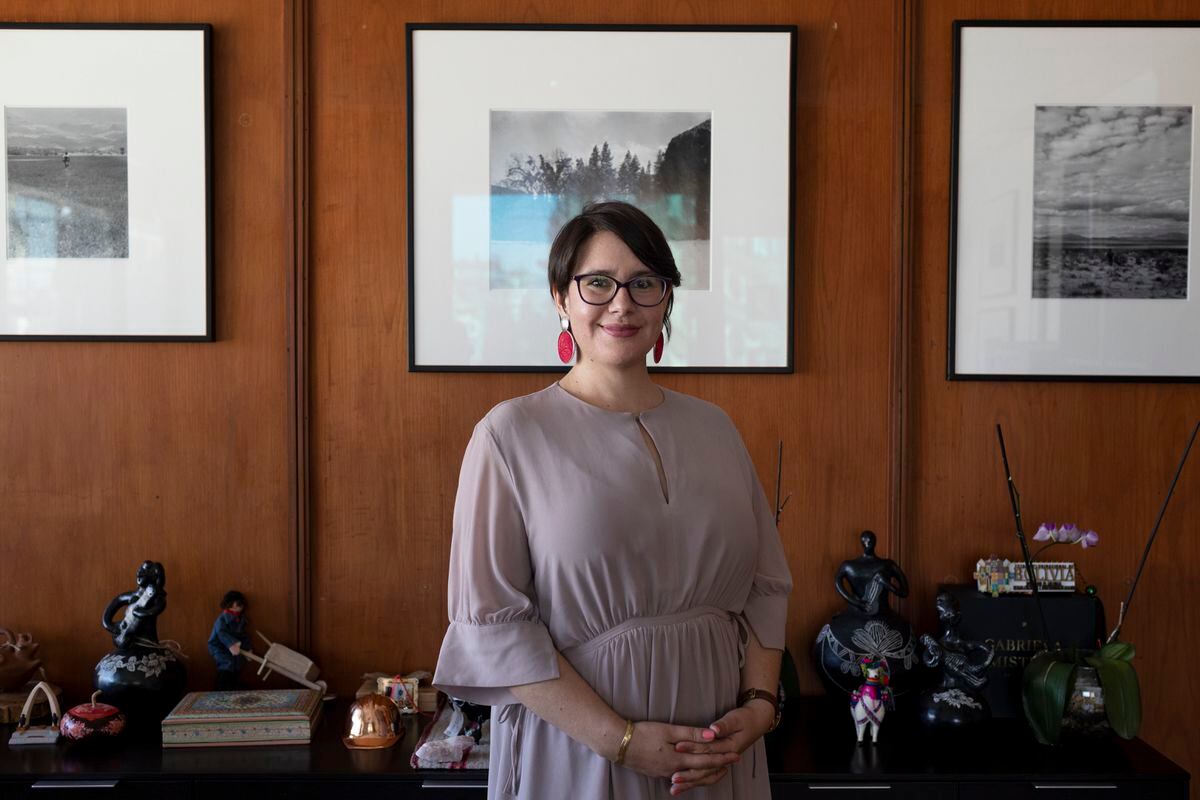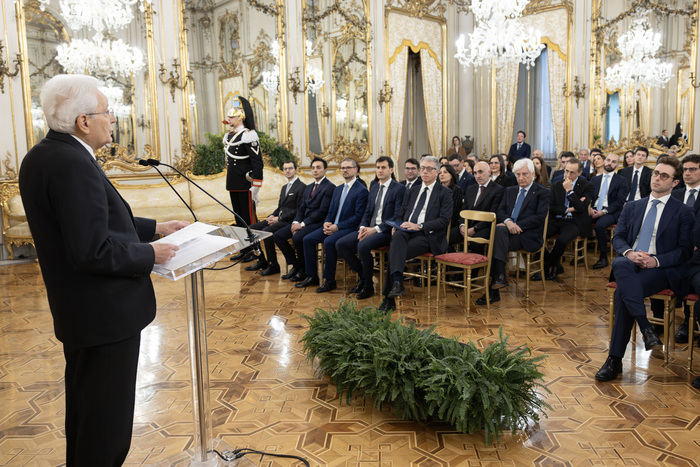September 11 marks half a century since Augusto Pinochet's military coup d'état, which overthrew the government of socialist Salvador Allende.
The commemoration finds Chile in the middle of the constitutional process to bury the Magna Carta inherited from the dictatorship, after the resounding rejection of the first proposal.
Julieta Brodsky, Minister of Culture of the Government of Gabriel Boric, is in charge of leading the milestones - there will be one each month - that will take place throughout the country to remember the victims and reflect on what happened.
"Our idea is not to monopolize the commemoration," Brodsky clarifies, in an interview given last Thursday in her office located on the eighth floor of the ministry, in the heart of Santiago.
Question.
The 30 years of the coup were marked by the "never again" of the Army and the 40 by the passive accomplices.
What to expect for 50?
Reply.
The commemoration of 50 years implies multiple challenges.
The Chile of 2023 is very different from that of 1973. For us it is very important to place unrestricted respect for human rights, memory, truth, justice, reparation at the center of our culture and public debate. comprehensive and guarantees of non-repetition.
But in addition to remembering and honoring the victims, it has to be a meeting place with the new generations who were not born under a dictatorship and who did not experience its consequences.
It is a great challenge because we have to build bridges with those new generations who today see what the coup d'état was as far away.
Generations that different studies show have been losing appreciation for democracy and that the idea of a possible authoritarian regime is beginning to become more flexible.
Q.
The last CEP survey showed that only 49% believe that democracy is the best system and authoritarianism advances. How are you going to promote the revaluation of democracy?
R.
As a government we have to build spaces to generate this intergenerational dialogue.
On the one hand, that they be convened by us, but also to generate platforms for different actors in society to produce them: from the different powers of the State, universities, think tanks, civil society, communities, etc.
Also teach about what happened.
There is an axis of the programming that are the Memory Tours, which we hope will not only take place in emblematic places, but also in neighborhood meetings, in houses.
We want to make a broad call for the communities to organize and generate these tours.
And of course the cultural, artistic, patrimonial contents are a space that can allow us to generate these reflections.
Our idea is not to monopolize the commemoration.
Q.
In addition to the dialogues, will there be an act designed to leave a legacy?
R.
We believe that this commemoration can leave a future legacy, but it is not possible to announce it yet because it is in process.
It has to do with the challenges we face in the future, which are ecological issues.
A monument that has a natural component because one of the lines of reflection that we have had is that democracy is very similar to a flower.
It is something that we have to take care of, water day by day, give it affection, and it is something that somehow symbolizes planting a memory seed in order to build and reap the future, democracy.
Julieta Brodsky. Sofía Yanjarí
Q.
50 years after the coup, what are the main outstanding debts of the Chilean State?
R.
There is still a search for the relatives of the disappeared detainees.
There are debts in matters of justice that do not concern us as a ministry, but there are certain commitments from our government program.
Debts in terms of reparation through programs that must be improved or redesigned.
Of course, we will not be able to achieve everything this year, but we will be able to give very clear signs of progress in this regard.
Q.
Will the Government present progress this year in these matters?
R.
_
Yes, but I cannot give so much clarity because the Ministry of Justice is the one that is most in charge of public policy related to the commemoration and we are the milestones, cultural activities and public works.
Q.
What milestones can you advance?
R.
_
We are going to start this commemorative process with the launch of the stamp in February.
We want milestones to be very decentralized.
The idea is to do something within the framework of March 8, related to the memories of women, of feminism.
There will also be a tribute to (the murdered composer) Jorge Peña Hen, in La Serena, with the youth and children's orchestras.
Others more solemn and political in the Palacio de La Moneda, especially closer to September 11.
In addition, there will be international milestones that are being coordinated with embassies abroad and with some governments that have shown interest, and there are regional tables working with human rights organizations in various activities, such as the delivery of real estate.
Q.
Will there be presidential dialogues with foreign personalities?
R.
Yes, that is something that is being designed.
The idea is to bring personalities from the world of culture and politics to reflect on this issue because threats to democracy are not something that is happening only in Chile.
It is important to generate this awareness through powerful figures -I cannot give names-.
but it is being thought that they come in different months of the year.
The 1973 coup affected not only Chileans, but also an entire international generation, especially left-wing, progressive movements.
Q.
You have met with the government parties to address the commemoration. Have you met with (the right-wing coalition) Chile Vamos?
R.
We have not yet had official meetings, but we have been in talks, especially through (the journalist and writer) Patricio Fernández.
He has met with different personalities, taking and incorporating visions, to understand how this commemoration is being seen from these sectors.
We hope to meet with them soon because respect for democracy and human rights must commit all of us.
Q.
President Boric wanted to commemorate 50 years with a new constitution, but the project was rejected. How long does this date mark the new constitutional process?
R.
It will mark the political and commemorative agenda in some way.
We really hope that this is the opportunity to have a renewed Constitution, that can face the challenges we have today and in the future, in terms of democracy, climate, to integrate the most neglected sectors and that makes us all feel proud.
That with the agreement reached between the different sectors, a common project approved by the majority of the population is achieved.
Subscribe here to the EL PAÍS America
newsletter
and receive all the latest news from the region





/cloudfront-eu-central-1.images.arcpublishing.com/prisa/2I75T5NCTFFJTDKNAD4SDRCYKM.jpg)



/cloudfront-eu-central-1.images.arcpublishing.com/prisa/KMEYMJKESBAZBE4MRBAM4TGHIQ.jpg)



